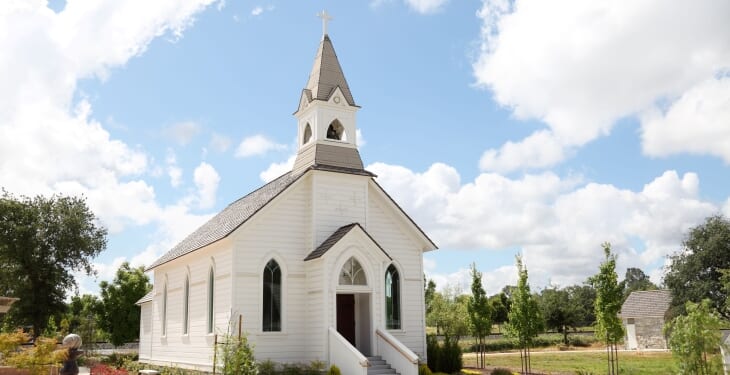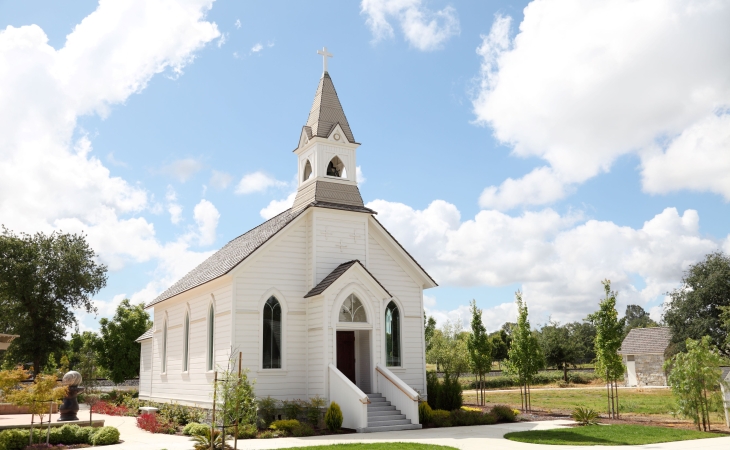According to recent Pew research, between February 2024 and February 2025, there was “a sharp rise in the share of U.S. adults who say religion is gaining influence in American life.” Pew was quick to note that those who hold this view are still in the minority. Nonetheless, it continued, “it is increasingly held by adults across several demographic groups — with gains of at least 10 percentage points among Democrats and Republicans, adults in every age category and in most large religious groups.”
In early 2024, Pew found that only 18% of surveyed American adults believed religion was gaining influence in American life — “the lowest level we had seen in more than two decades.” But by early 2025, that number rose to 31% — “the highest figure we’ve seen in 15 years.” Conversely, 80% of surveyed Americans believed religion’s influence was declining in 2024. In 2025, that number changed to 68%.
Respondents were asked whether the increased — or decreased — influence was good or bad. “Overall,” Pew wrote, “59% of U.S. adults express a positive view of religion’s influence on American life. Either they say that religion’s influence is growing and this is good, or they say that religion’s influence is declining and this is bad.” On the other hand, “20% express a negative view,” believing that either “religion’s influence is growing and this is bad, or they say that religion’s influence is declining and this is good.” A slightly higher 21% had neutral or “unclear” positions, saying that “the changing influence of religion ‘doesn’t make a difference’ in American life, or they declined to answer the questions.”
Click here to sign up for pro-life news alerts from LifeNews.com
As for demographics, Pew broke it down:
- 92% of white evangelical Protestants, 75% of black Protestants, 71% of Catholics, and 67% of white nonevangelical Protestants expressed a positive view of religion’s role in public life.
- 11% of agnostics and 6% of atheists (6%) held positive views, while most expressed “negative views of religion’s influence in American society.”
- “Jews and people who describe their religion as ‘nothing in particular’ are almost equally split between those who have a positive view of religion and those who have a negative view. A sizable share in each group have a neutral or unclear view.”
- 78% of Republicans and Republican-leaning independents held a positive view of religion’s influence compared to only 40% of Democrats and “Democratic leaners” who did.
- “71% of adults ages 65 and older express a positive view of religion, compared with 46% of 18- to 29-year-olds.”
By comparing recent results to previous years, Pew was able to track that from 2019 to now, the numbers show “an overall shift toward more positive views about religion’s role in American life over the past five years or so.” In fact, more Americans are reportedly feeling “at odds with mainstream American culture because of their religious beliefs.” As of this year, 58% of American adults reported there being “a great deal or some conflict between their religious beliefs and mainstream culture,” which is a “10-point rise from 2024 and 16-point rise from 2020.” In sum, Pew emphasized, “Feeling at least somewhat in conflict with American culture because of personal religious beliefs is now a majority view.”
According to the research, these developments are not isolated to small communities but are “shared widely” within public life as a whole. When asked about Christianity specifically, and how respondents viewed its influence on American life, 48% of Americans believed Christianity’s influence is decreasing, 27% said it’s increasing, and 24% said it’s “not changing very much” — Pew noted that this latter category was not a part of the broader question on religion’s influence, thus making the two questions “not comparable.”
“Nevertheless,” Pew added, “general patterns on these two questions are similar. Like the results on the question about religion’s changing influence, a larger share of Americans now say Christianity’s influence on American life is increasing (27%) than said this in 2020 (19%). But it is still a minority view.”
While on the topic of Christianity, and as part of a separate survey on the “exploration of views about religion in public life,” Pew asked, “How important is ‘loving your country’ to religious identity?” Among professing Christians, 29% said it’s “essential,” 47% said it’s important but not essential, 24% said “loving your country is not important to being Christian.” What the majority of Christians did find essential to Christianity, however, was “being honest (86%), treating people with kindness (85%), believing in God (85%), having a personal relationship with Jesus Christ (76%) and helping those in need (66%).”
Brent Keilen, Family Research Council’s vice president for Strategic Initiatives, offered his reaction to these results. “The results of this survey are an encouraging sign,” he shared with The Washington Stand. “While a positive view of religion could mean a number of different things, it illustrates an overall increasing openness to faith.” He further explained how an increased interest, even in religion as a whole, opens the door for engagement for those of Bible-believing faith. “This is yet one more recent example of the surge in religious interest,” Keilen concluded, “and it underscores the massive opportunity churches have in this moment.”
LifeNews Note: Sarah Holliday is a reporter at The Washington Stand, where this originally appeared.












